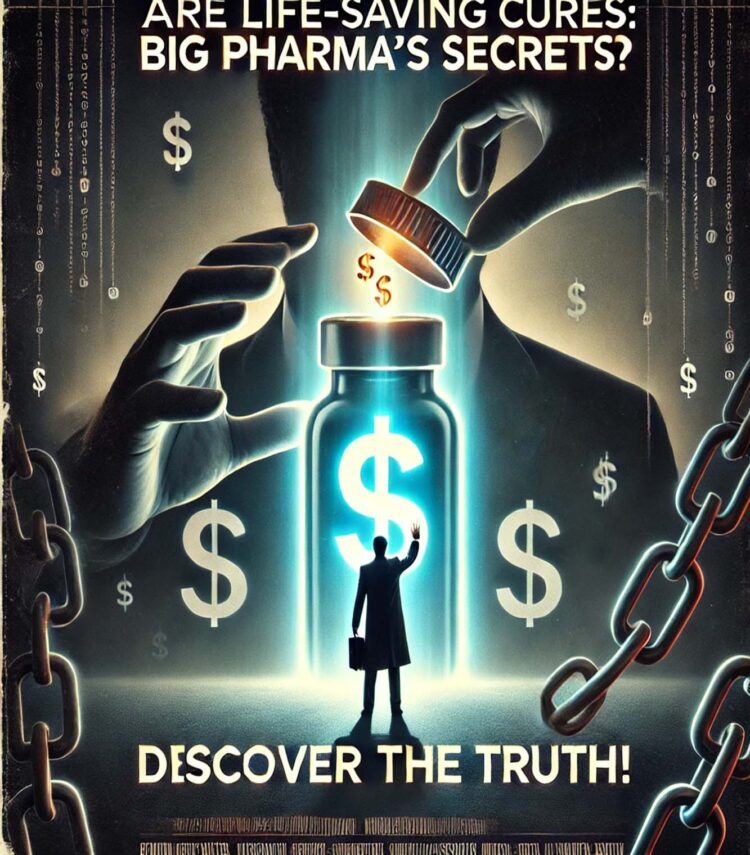In today’s world, where information is readily accessible, it’s not uncommon to come across claims that large pharmaceutical companies, often referred to as “Big Pharma,” are hiding cures for diseases to maintain their profits. This idea suggests that these companies prioritize financial gain over public health by keeping effective treatments secret. Let’s delve into this topic, explore the origins of these beliefs, and examine the evidence to understand the truth behind these claims.
Understanding the Conspiracy Theory
The belief that Big Pharma is suppressing cures encompasses several key ideas:

- Hidden Cancer Cures: Some people think that pharmaceutical companies have discovered cures for cancer but choose to hide them. They argue that by keeping these cures secret, companies can continue to profit from ongoing treatments that don’t fully eradicate the disease. A survey in 2005 found that 27% of Americans believed in this idea. en.wikipedia.org
- Natural Remedies Suppression: There’s a notion that natural treatments for various illnesses exist but are being suppressed by pharmaceutical companies. For instance, Kevin Trudeau’s book, “Natural Cures ‘They’ Don’t Want You to Know About,” claims that natural remedies for serious diseases are deliberately hidden from the public by major drug companies and regulatory agencies. en.wikipedia.org
- COVID-19 Misinformation: During the COVID-19 pandemic, conspiracy theories emerged suggesting that the virus was artificially created and that pharmaceutical companies were hiding effective treatments to profit from vaccines. The video “Plandemic” promoted the idea that Big Pharma, along with other organizations, conspired to harm the public for financial gain. en.wikipedia.org
Examining the Evidence
While these theories are widespread, it’s essential to assess the evidence critically:
- Cancer Research: The medical community has made significant strides in cancer treatment. For example, the drug Sovaldi has been effective in treating Hepatitis C, achieving cure rates above 90% with reduced side effects. This success demonstrates that pharmaceutical companies do develop and release effective treatments. goodnewsnetwork.org
- Transparency in Research: There have been concerns about the transparency of clinical trial data. A look at research contracts between corporations and academic medical centers showed that 80% allowed the commercial funder to own and control the data from jointly conducted research. This control can lead to selective reporting, but it doesn’t necessarily mean that cures are being suppressed. time.com
- Economic Incentives: The argument that companies suppress cures to maintain profits overlooks the fact that developing a cure can be highly profitable. A successful cure would likely command a high price and be in great demand, providing substantial financial returns to the company that develops it.
Real-Life Implications
Belief in these conspiracy theories can have serious consequences. Individuals who subscribe to the idea that cures are being suppressed may:
- Avoid Proven Treatments: Opting for unproven alternative remedies over established medical treatments can lead to worsened health outcomes. For instance, choosing alternative methods over conventional cancer treatments can result in disease progression and decreased survival rates.
- Erode Trust in Healthcare: These beliefs can diminish trust in medical professionals and institutions, leading to reluctance in seeking necessary medical care or following public health advice.
Conclusion
While it’s crucial to remain vigilant and critical of any industry’s practices, the claim that Big Pharma is systematically suppressing cures lacks substantial evidence. The development of effective treatments and cures is a complex process influenced by scientific, regulatory, and economic factors. It’s important to base our understanding on credible information and to consult healthcare professionals when making decisions about medical treatments.
Sources.
https://en.wikipedia.org/wiki/Big_Pharma_conspiracy_theories?utm_source=chatgpt.com
https://time.com/6171999/big-pharma-clinical-data-doctors/?utm_source=chatgpt.com

